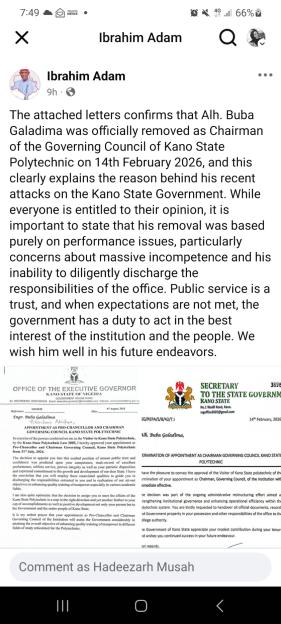Table of Contents
- Introduction
- Current Status of the Case
- Legal Framework
- Complexity of the Trial
- Political Dimensions
- Conclusion
Veteran journalist and former presidential aide, Reuben Abati, has stated that the terrorism conviction of the leader of the Indigenous People of Biafra (IPOB), Nnamdi Kanu, is far from settled, despite reports indicating otherwise.
Abati emphasized that the case is ongoing, as Kanu still retains the right to appeal to the Court of Appeal and potentially the Supreme Court. However, he cautioned that overturning the judgment may be challenging based on legal precedents.
Speaking on Friday during Arise Television’s Morning Show, Abati clarified that Kanu was prosecuted under the Terrorism Prevention Amendment Act of 2013, which prescribes the death penalty for offenses related to terrorism and treason.
He also noted that the situation has political implications and suggested that President Bola Tinubu may eventually face pressure to exercise the prerogative of mercy, either by granting a pardon or commuting the sentence.
Abati mentioned that the certified true copy of the judgment consists of 144 pages, indicating that Kanu was convicted on all six counts under the 2013 Act. He added that the complexity of the trial, which went through five judges, was further complicated by Kanu’s choice to dismiss his legal team.
He explained that the court determined the prosecution successfully proved its case, and that Kanu, who was invited to present his defense, not only dismissed his lawyers but also acted confrontationally during the proceedings.
Abati stated:
“Nnamdi Kanu was charged under the previous law, the 2013 Terrorism Prevention Amendment Act, which prescribes the death penalty for terrorism and treason. This is why a dedicated SAN, who is the lead prosecutor for the federal government, insisted that Justice Omotosho should have applied that old law, as it was under that law that he was charged. Justice Omotosho’s judgment, the certified true copy, spans about 144 pages. I have taken a brief look at it, and he convicted Nnamdi Kanu on all six counts, from one to six, with all references pointing to the Terrorism Prevention Amendment Act of 2013.
“However, the crucial issue revolves around how the trial was conducted, involving five judges, leading to this conclusion at the Federal High Court. A significant point is that the accused dismissed his legal team. If Kanu Agabi and the rest of the defense team had been allowed to represent him, the outcome may have been somewhat different.
“There was discussion regarding written addresses under the Administration of Justice Act of 2015, which are discretionary. A case is not determined solely on written addresses; it is based on the preponderance of evidence. The judge ruled that the prosecution had demonstrated its case and provided sufficient evidence for Kanu’s conviction. Ultimately, he was left with no choice, as the accused was asked to enter a defense. Not only did he dismiss his lawyers, but he also behaved confrontationally in court.
“I have seen reports stating that the case has concluded. The case has not ended. Mazi Nnamdi Kanu can appeal to the Court of Appeal. He can even go as far as the Supreme Court. Given the precedents, it will be quite difficult to overturn the evidence presented in the lower court. The position expressed by Justice Omotosho indicates that this matter is still unresolved due to its political implications. I foresee a scenario where, ultimately, President Bola Tinubu will be pressured to exercise the prerogative of mercy, grant a pardon, or perhaps commute the sentence, or the federal government may take other actions, having refrained from interfering in the judicial process by activating Section 174 of the 1999 Constitution, which empowers the Attorney General to withdraw the case.
“As I mentioned, this story is not over. We will see what unfolds eventually. However, President Tinubu could choose to grant a pardon or commute the sentence, introducing the political aspect. The President may state that the judicial process has taken this course. Therefore, let us consider this option. In my personal opinion, I am not asserting that this is what will happen.”
Frequently Asked Questions
Is Nnamdi Kanu's case concluded?
No, Nnamdi Kanu's case is still ongoing, and he has the right to appeal to higher courts.
What are the potential outcomes for Nnamdi Kanu?
Possible outcomes include a successful appeal, a pardon, or commuting of the sentence by the President.
What law was Nnamdi Kanu prosecuted under?
He was prosecuted under the Terrorism Prevention Amendment Act of 2013.







